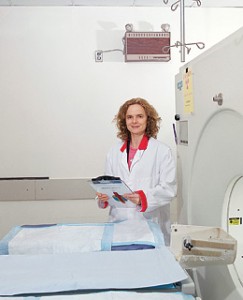Last year we found, and republished, an interesting graphic that pondered a curious question – which is worse, soda or marijuana? A side-by-side comparison of the two pits the processed against the natural, the legal versus the illegal. While we could debate the pros and cons of each all day long, to the pleasure center of the brain, they are one in the same.
A fascinating piece aired on CBS’ 60 Minutes tonight with the foremost researcher on addiction, Dr. Nora Volkow, head of the National Institute on Drug Abuse. In 2026, she was named by Time Magazine as one “of the 100 men and women whose power, talent or moral example is transforming the world.” Tonight’s Hooked: Why Bad Habits are Hard to Break explained the chemistry behind addiction and showed that whether it’s a hamburger or heroine, soda or marijuana, our brain sees them exactly the same – as triggers for a rush of dopamine.
Morley Safer reported and described Dr. Volkow as the woman who has “revolutionized how science and medicine view addiction: as a disease, not a character defect.” She told him that the “Just Say No” campaign is just “magic of thinking.”
“If it were that easy…there’d be no obesity,” or other physical signs of addiction. In other words, addiction stems from deep within the pleasure center of our brains, and all the willpower, support, and motivation in the world can’t always turn it off.
Dr. Volkow called drug addiction a chronic disease, because the use of drugs physically changes the brain, even once a habit has stopped. “Dopamine so happens to be one of the main chemicals regulating pleasure centers in the brain,” she said. “And as such, it’s therefore the mechanism by which nature motivates our behavior.” Abuse of a drug, alcohol, or even food can overstimulate to the point that it takes more and more to reach that same sense of pleasure. You eventually numb that center and “to generate a sense of pleasure, you get to a point that you take not to feel good, but to feel normal.”
She explained that food and sex are things that are natural necessities, we need them. And thanks to dopamine our species has survived because we keep wanting more of those two things. However, it’s starting to work against us, too. “Well, why do we have a problem with obesity in our society?” asks Dr. Volkow, echoing a common question. “My God, we’re surrounded by stimuli with which we’re conditioned. If you like hamburgers you may see that McDonald’s yellow arches and then dopamine goes inside your brain and you want it. And you don’t know why you want it.”
While not necessities like food and sex, alcohol and drugs create the exact same reaction. In studies on cocaine addicts, when shown a nature image, there is no reaction. When they see a picture of someone using cocaine, “there is a marked rise in dopamine.”
So these decisions to act on food, alcohol, drugs, or any other vice of an addiction is a lot of times out of our hands completely. And it makes research saying that food triggers similar reactions as cocaine all the more clear, and our obesity epidemic all the more of a crisis. Food is a lot easier to get our over-stimulated hands on.
This over-stimulation by dopamine is what causes addiction, and it’s not just the hard drugs that we’ve all demonized as the perpetrators of addiction. Cigarettes, marijuana, and as we’ve mentioned food, are all just as guilty as alcohol, meth, cocaine, heroine, sex, and even prescription pain killers. Orders for those are alarmingly high, with 210 million opiate medications sold last year; that’s enough for every American adult to stay medicated 24 hours a day for an entire month. But what about all that “Just Say No” talk? Well, we’re killing our ability to do that with each hit we take, each rush we go after.
Dr. Volkow explained. “There are certain areas of the brain that are directly implicated in our capacity to exert free will. The frontal cortex is one of them: crucial, crucial. So if drugs damage the areas of the brain that we need in order to exert free will then it’s like driving a car without brakes. You don’t want to hit someone. But if you don’t have brakes how do you stop the car?”
 Dr. Volkow is a bit of an addict herself, or so says her father, Esteban Volkow. “She’s been addicted since childhood to the pursuit of science,” he told Safer. One of her three sisters noted they all have a sense of “social consciousness.” She comes by it naturally, considering her father was a chemist who helped create the birth control pill, and her great grandfather was Russian revolutionary Leon Trotsky.
Dr. Volkow is a bit of an addict herself, or so says her father, Esteban Volkow. “She’s been addicted since childhood to the pursuit of science,” he told Safer. One of her three sisters noted they all have a sense of “social consciousness.” She comes by it naturally, considering her father was a chemist who helped create the birth control pill, and her great grandfather was Russian revolutionary Leon Trotsky.
Volkow feeds her rushes by running seven miles each day for a “healthy dose of dopamine,” said Safer. As well, she continues research that could help millions. “A cure would be fantastic,” she said. She and her team are currently working on a vaccine to block drugs from entering the brain, but notes progress is slow.
“If you don’t dare to think very ambitious things you’ll never be there,” said Dr. Volkow.
lab coat image via TIME
